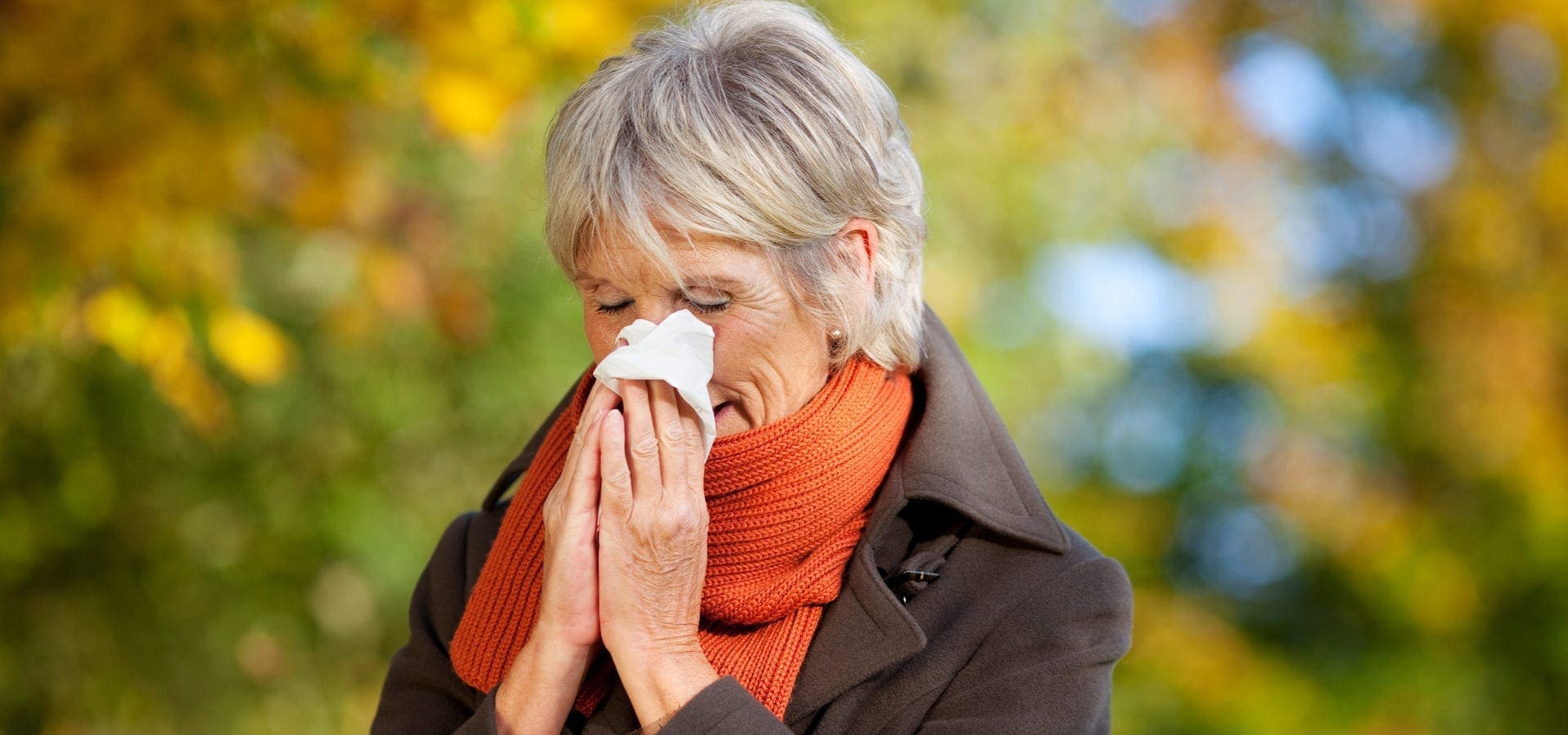Along with the welcome changes of the fall, comes an unwelcoming season – flu season. Seniors are at the highest risk of severe flu complications because immune systems become weaker as you age. According to the Center for Disease Control (CDC), seniors aged 65 and older account for up to 70% of hospitalizations from the virus and between 70-85% of flu-related deaths. The flu can also often lead to pneumonia in seniors if it’s not properly managed and prevented. Learn more about how to prevent the flu, symptoms, and treatments to protect your senior loved ones this season.
Know the Symptoms
The flu can often be misdiagnosed in seniors, which can lead to greater complications when left untreated. While the influenza virus is normally characterized by a fever over 100 °F and a cough and/or sore throat, many seniors affected with the virus don’t display any of these symptoms.
Typical symptoms of seniors affected with the flu include:
- Weakness
- Dizziness or light-headedness
- Loss of appetite
- Delirium
- Malaise (an overall feeling of discomfort and fatigue)
- Body achiness
- Worsening of chronic heart or lung condition
It may be more difficult to notice symptoms in seniors with preexisting conditions, so take note and be alert to any changes in your loved one’s overall health and see a doctor if any unusual symptoms occur. Influenza can be diagnosed by a simple swab of the throat or nose, so it’s better to get tested with a doctor than leave symptoms untreated.
Practice Good Habits
Encourage all seniors to wash their hands frequently to prevent the spread of illnesses and avoid others who are ill, especially if your loved one is frequently in close contact with other seniors. Good overall health habits are vital in preventing the flu and pneumonia. Make sure your senior is following appropriate nutrition guidelines and getting plenty of exercise and rest in order to help keep their immune system strong. Supplements such as Vitamin C can also help to boost your senior’s immune system during flu season.
Get Vaccinated
The best way to prevent the flu is to get the flu vaccine. The vaccine is adjusted every year to protect against the current flu strand, so seniors should get it every year. The CDC has found that flu vaccination can reduce the risk of contracting the flu by 40-60%. Along with the flu vaccine, seniors are advised to get the pneumococcal vaccine, which protects against pneumonia, meningitis and bloodstream infections.
There are two types of flu shots for seniors; the high dose vaccine and the adjuvanted vaccine. The “high dose vaccine” contains 4 times the amount of antigen as a regular flu shot. It is associated with a stronger immune response following vaccination, as found in a clinical trial conducted in the CDC that showed that adults 65 years and older had 24% fewer influenza infections with the high dose vaccine compared to the standard vaccine. The adjuvanted vaccine contains an additive that creates a stronger immune response to vaccination and is 63% more effective than regular dose flu shots.
Be Proactive
If you or your loved one start feeling the symptoms of the flu, call your doctor right away. They can prescribe antiviral drugs that will treat the flu and prevent serious complications, such as pneumonia. Antiviral drugs work best when started within 48 hours after symptoms begin. Because the flu is a virus, bed rest and plenty of fluids are the best treatment in addition to medication. If symptoms worsen, be prompt in seeking emergency medical care to prevent further complications.
Influenza season is almost here, and a little bit of prevention can go a long way. About Care Home Care caregivers can help your senior stay proactive by routinely checking up on their health and accompanying them to doctors’ appointments to get their flu shot and treatment. It’s time to step up self-care and flu prevention efforts to keep our loved ones healthy and well to enjoy all the good things the season has to offer.
